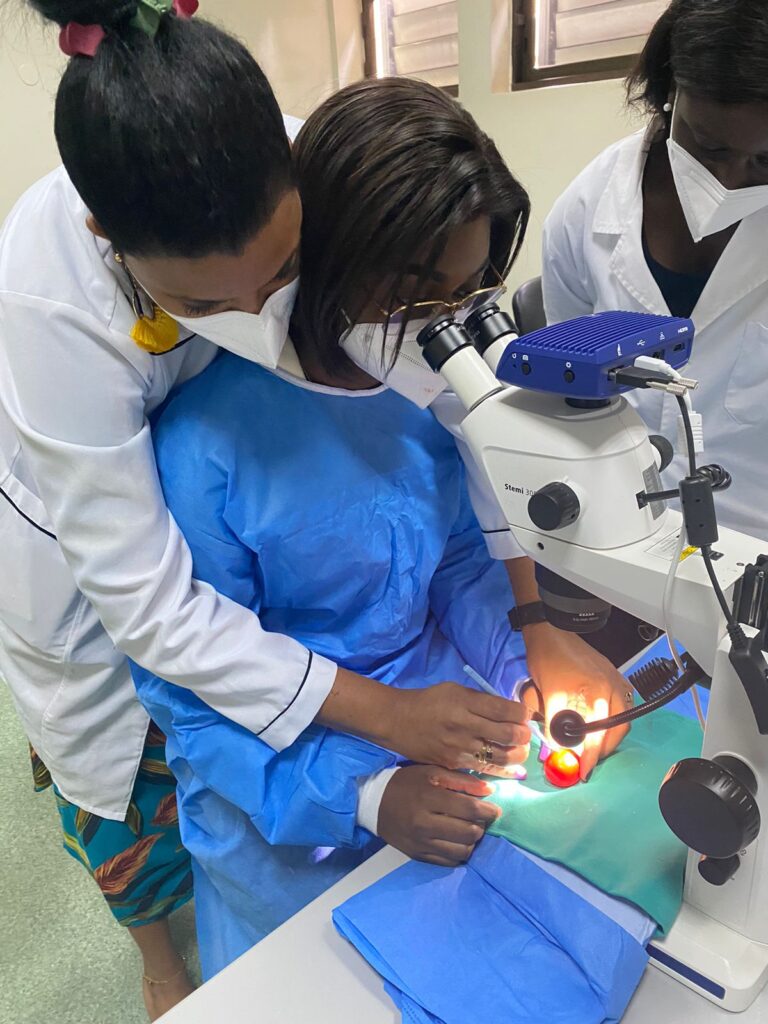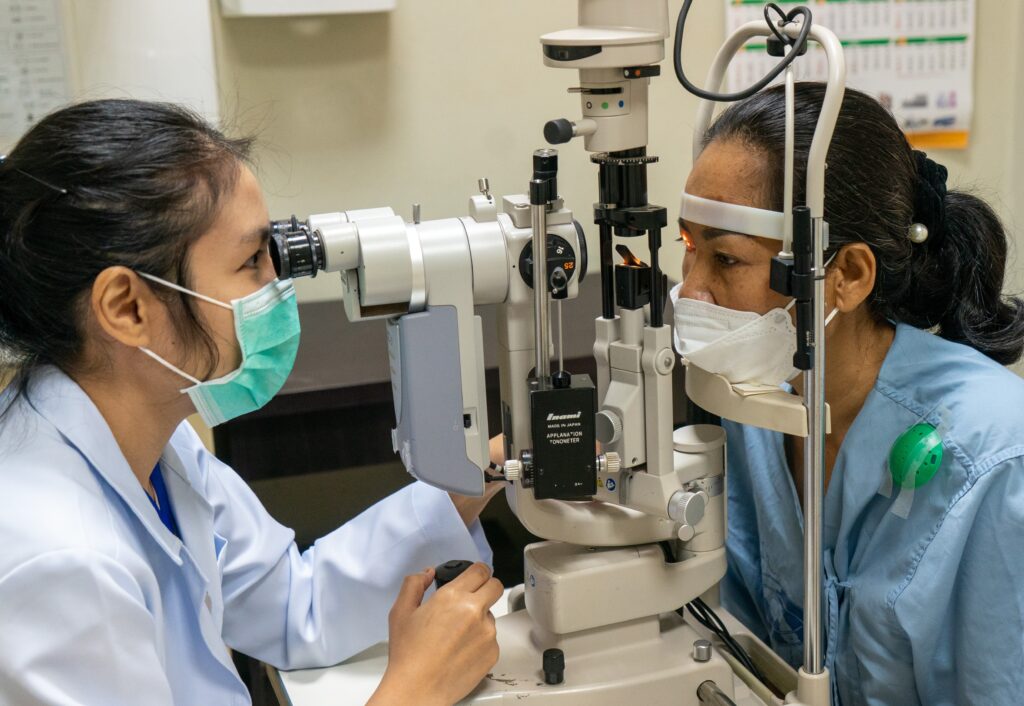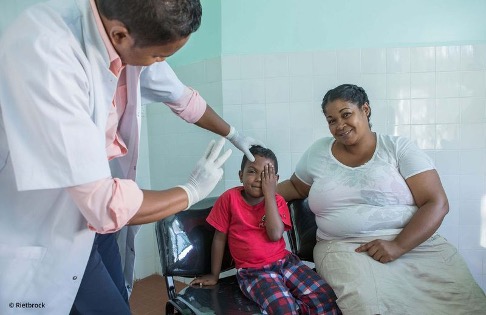Deepening our vision of a wholistic training for Portuguese-speaking ophthalmologists
Enabling Angola to be independent for eye health care in the future, by training doctors and sending much-needed equipment today.
The overarching goal of this project is to develop the training for Portuguese-speaking doctors in Angola. The long-term goal is to have broader access to eye health care, including cataract operations, for those people most in need.

Angola in numbers
- Surface
1,246,700 km2 - Population
35.6 M. - GDP per capita (PPP)
3,000 USD (LU: 125,006 USD) - Population (%) under national poverty line
36% (LU: 19.2%) - Life expectancy
64 years (LU: 82.3 y.) - Literacy
72.4% of population > 15 years - Physicians’ density
0.21/1,000 inhabitants (LU: 3.0) - Human Development Index
Ranked 158 out of 204 countries
Why this project?
Ophthalmology in Angola is a huge challenge. Nationally, there are roughly 100 ophthalmologists, in a country with an estimated population of 35 million inhabitants. This means there is only 1 ophthalmologist for every 350,000 people, when the WHO recommendation is 1 ophthalmologist for every 10,000 inhabitants. Another major challenge in Angola is the almost non-existence of a Primary Eye Care network, causing long waiting lists for appointments and cataract surgeries.
Inspiration
The project in Angola was inspired by the DESSO project in Guinea, carried out by CBM Switzerland. The DESSO project offers a comprehensive ophthalmology training in French for West African countries. This successful program has had a great impact on ophthalmological care. Applying some of these learnings, CBM Luxembourg is developing a complete ophthalmology training program in Portuguese in Angola. Once a higher number of ophthalmologists master cataract surgery techniques, many more people in Angola can be treated. This program should also become attractive for doctors from other Portuguese-speaking countries, such as Mozambique, and the Cape Verde Islands, in the future.
How does the project help?
Fondation CBM Luxembourg has been working in Angola since 2021. During this time, CBM has focused on four key areas:
i. sending medical equipment, such as refurbished OCT, a used slit lamp and YAG laser, a phaco-emulisifier and two microscopes for the training “wet lab”,
ii. sending consumables for over 4,750 cataract operations,
iii. covering the tuition fees for training 12 doctors and 2 nurses in cataract surgery techniques, and
iv. covering the costs of visiting professors to Angola.
During an onsite visit to Angola in January 2024, two CBM Luxembourg Board Directors were able to verify the impact of the work done since 2021. They confirmed how the key support elements each address the needs of the healthcare problems in Angola. For example, consumables are scarce and not reliably accessible in Angola. With only €35, CBM Luxembourg can purchase and send a kit with all the consumables for 1 cataract operation to Angola. Doctors do not have access to surgical training in Angola, while external courses are only available in English or French. CBM Luxembourg provides English language classes and subsequently funds doctors to travel to be trained in The Gambia. By sending medical equipment and devices, like the refurbished OCT sent in October 2023, the capabilities at IONA are improved and more patients can be screened for visual deficits.
What does the project achieve?
Goals of the project from 2024 to 2026:

1. Equipment
Provision of training equipment for the experimental “wet lab” and other needed medical equipment (such as a phaco-emulsificator).
2. Consumables
Provision of cataract surgery kits for 1,000 operations per year.
3. Training
Payment of tuition fees for training up to 5 IONA doctors in cataract surgery specialisation and up to 4 IONA nurses in sterilisation, per year.
4. Visiting professors
Coverage of costs for visiting professors as well as coverage of the travel for top IONA residents to attend relevant ophthalmology congresses.
Local Partner

The National Ophthalmological Institute of Angola (IONA) is attached to university clinics and is our primary local partner. IONA is currently the most renowned national eye health care service and has the skills necessary in the different ophthalmic sub-specialties. CBM has worked with IONA from 2021 and we have formed a strong, mutually trusting partnership with them. We continually receive feedback on how CBM donations are making an impact.
The January 2024 visit allowed CBM Luxembourg to confirm it’s commitment to the Angola Project and our local partner, IONA. Having exceeded the goals of our first 3-year Memorandum of Understanding, the Board Directors were able to sign a new 3-year agreement with IONA. The new Memorandum lays out the basis for a continued collaboration from 2024 to 2026.
The budget
Fondation CBM Luxembourg is solely responsible for the Angola project and has provided funding of €430,000 from 2021 to 2024. For the next 2 years, 2025 to 2026, we plan a budget of €190,000 per year for our projects in Angola.
Links
Watch highlights from the CBM Luxembourg trip to Angola, January 2024, here.

